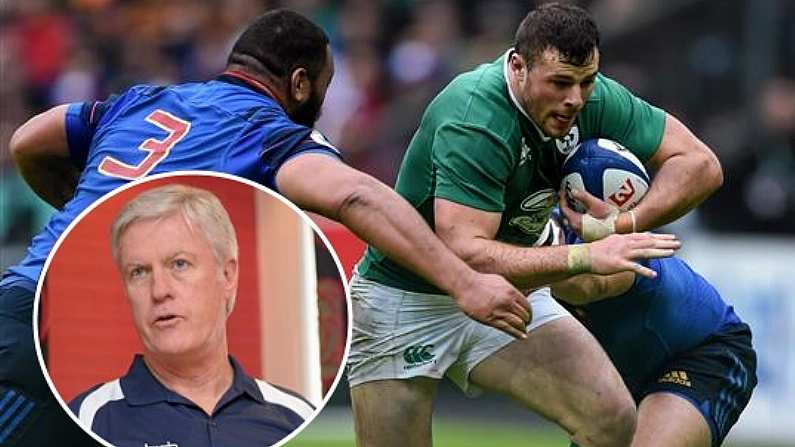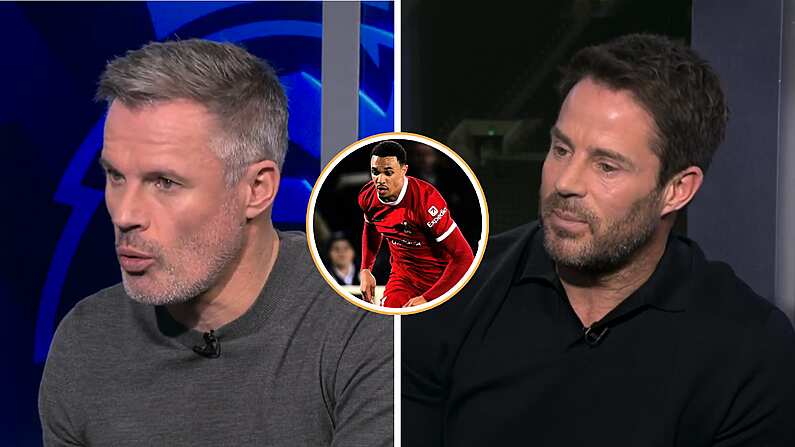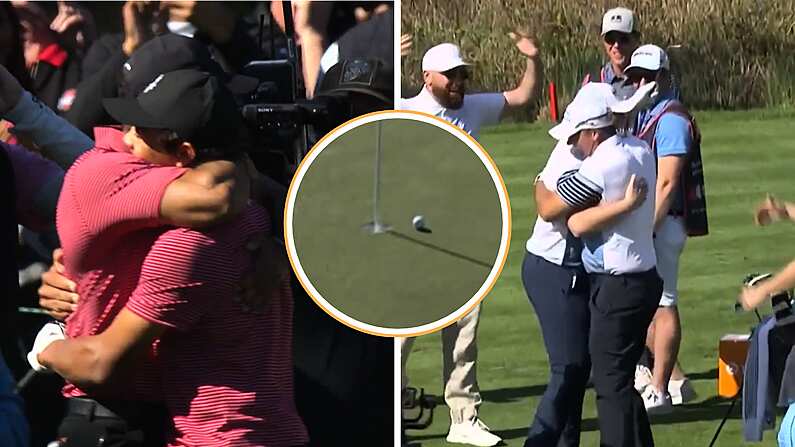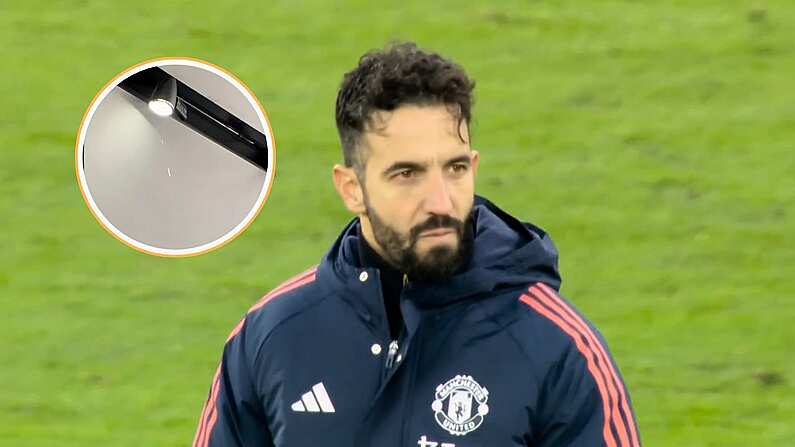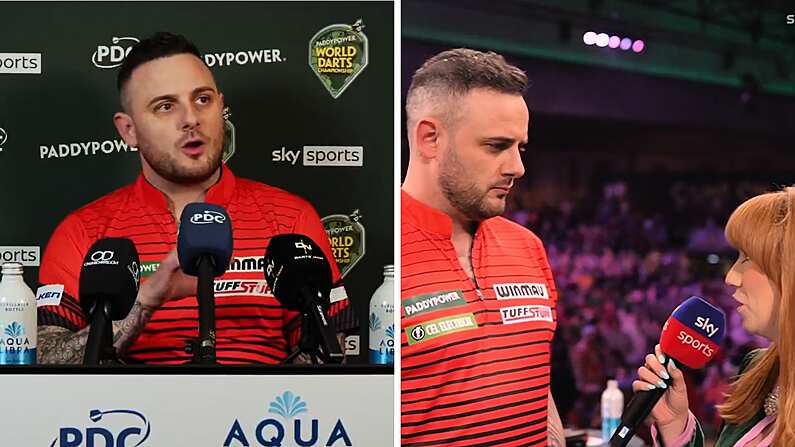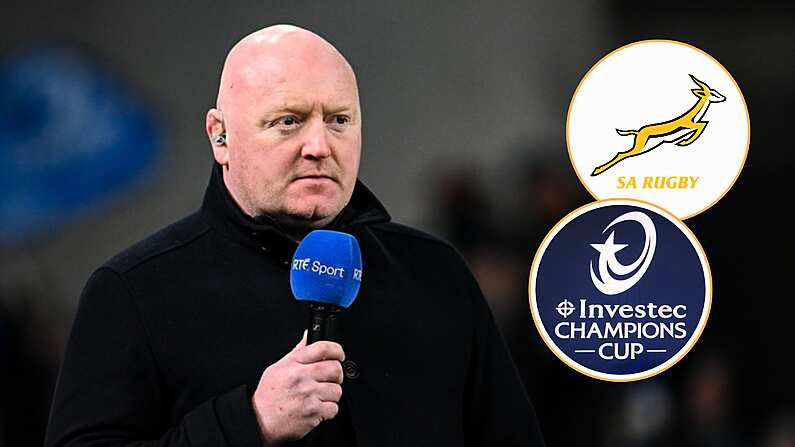There's a real urgency when Matt Williams speaks about the current condition of Irish rugby.
He's worried. His worry is mainly that Ireland will be left behind by teams who have changed their philosophy after the World Cup, something Ireland and Joe Schmidt have been slow to do.
Speaking on Newstalk's Off The Ball, Williams stated that in terms of attacking prowess, Ireland have gone backs over the past 15 months.
I'm not here to attack Joe Schmidt, I'm not here to just try and say negative things for the point of negativity. That's exactly the opposite of what I want to do. I want to see Ireland play well. But after the World Cup, there was a great divide between the north and south and we needed to change. The north really needed to look itself and say 'Look at Argentina, look at how far they've come in two or three years, we really need to change.'
Really, Irish attacking rugby has gone backwards and it has been in an exceptionally poor state for the last 15 months. Since the November internationals in 2014, Ireland have only scored more than two tries on one occasion.
It's not the attitude of the players. The players are putting their hands up to carry the ball forwards. They are leading the Six Nations in the number of ball carries but they are last in metres gained. The system is just not working.
Ireland's need to evolve to a more open attacking style of rugby is borne out by a stat cited by Williams which he says should 'frighten' the try-shy Irish side.
In international rugby over the last 12 months, only once has a team scored three tries or more and lost a game.
There's another number that people are missing here and it's holding strong. At international level for the past 12 months, teams that are scoring three tries, one every occasion but one, have won the game.
Now that's an amazing statistic and it's a change in the way the game's moved and, as usual, New Zealand have driven this. The only time New Zealand didn't score three tries in the last 12 months was against Australia in Sydney when they scored two and they lost that game and Australia scored three.
If you're a country like Ireland that is only able to score one or two tries a game - which has happened for the last 14 months, except for one occasion - then that number should frighten you.
If Williams has a sense of urgency about the situation, he believes the opposite is the case with the media in Ireland.
In the media in Ireland, I've just found myself to be a bit of a lone voice. All of a sudden I'm getting quite a bit of grief for it, that doesn't worry me. But it does worry me that everyone thinks God's in his heaven and all's right with the world and it's just a bit of bad luck - it's not.
If Ireland don't change and have a serious grown-up think about what they're doing, when they come to the next World Cup - and the other countries have started for the next World Cup - we're just going to get the same result. There's no two ways about this and I am concerned about it.
The system that Ireland have now is just totally predictable to the opposition teams. It's not a matter of courage, it's not a matter of effort from the players; players are putting their hand up. There is a total predictability about what we're doing.
Former Ireland coach Eddie O'Sullivan was also on to talk about where the Irish team finds itself after the opening two games of the Six Nations.
O'Sullivan explained Ireland play a 'three-ruck rotation' and that this system has easy for opposition teams to read.
They play what is called a 'three-ruck rotation'. So, if you think about it, we start at a lineout. We hit up, we have a ruck then we have another hit up, have a ruck and then the forwards have a third hit up and that's in field. From the third ruck we look to go wide. Now might you might not always go wide but every three rucks, you look to move the ball. It's a system that's very successful if you can win multiple collisions because you can really work through the phases and run really hard lines and if they keep losing collisions then you can really back them into their own 22 or if they make a mistake in the process, you get your line break or if they give away a penalty, you kick your points.
That's worked really well for us but as Matt alluded to there, that system after a while - if teams know you're going into that shape - they know where you're going to bring the pressure points, they know where to load up the defence and I think recently teams have been anticipating our strike points and getting in front of us. Your frequency of winning those collisions goes down and when you don't win collisions in the three-ruck rotation, you become stagnant.
O'Sullivan did feel there was a modicum of positivity to come out of Ireland's games against Wales and France. Against the Welsh, he felt Ireland showed minor variations in play which suggested Joe Schmidt was changing style. However, the weather in Paris forced Ireland to play a more cautious game.
Williams believes Ireland need to starting blooding new players soon. England at Twickenham might not be the place to do it, but with the remaining games against Scotland and Italy, we will surely see the likes of Stuart McCloskey get a start.
Ireland have had a number of injuries and I understand that you need to get a team out on the field but the team that went out against France, I think there were eight, maybe nine were in their 30s. Now that team is not going to take us forward for four years. The French team on the other hand had one player over 30. That French team will go forward for four years. If we come back to your original question 'Can we fix this in two weeks?' no we can't, but you've got to start somewhere.
It should have started after the World Cup.
We have to start saying 'Who are our long-term bets in those positions?' 'Who is our best young outside centre coming through?' Let's start getting these guys out there and blooding them. Let's give them some time. Brian O'Driscoll in his first game - it was the last game that I coached New South Wales - I do not remember anything about Brian O'Driscoll in that game, he was just an ordinary player. Of course, Brian went on to become one of the best players the world has seen.
It takes time to adjust to international level, as it has with Robbie Henshaw, who is now starting to play some decent rugby. He's still not there. We need to give these guys time in these positions and we need to give them skillsets back at the provinces and we need a national philosophy that comes down into the provinces.
You can listen to Matt Williams and Eddie O'Sullivan on Off The Ball below.

